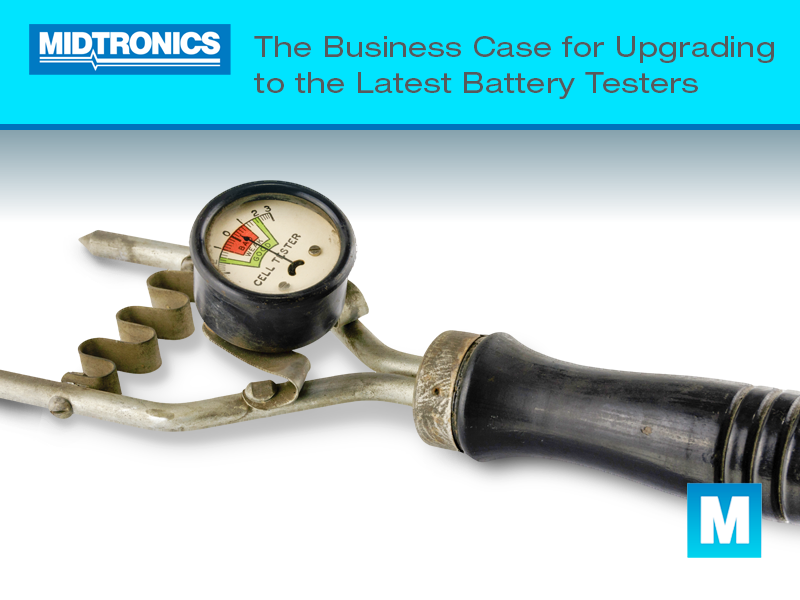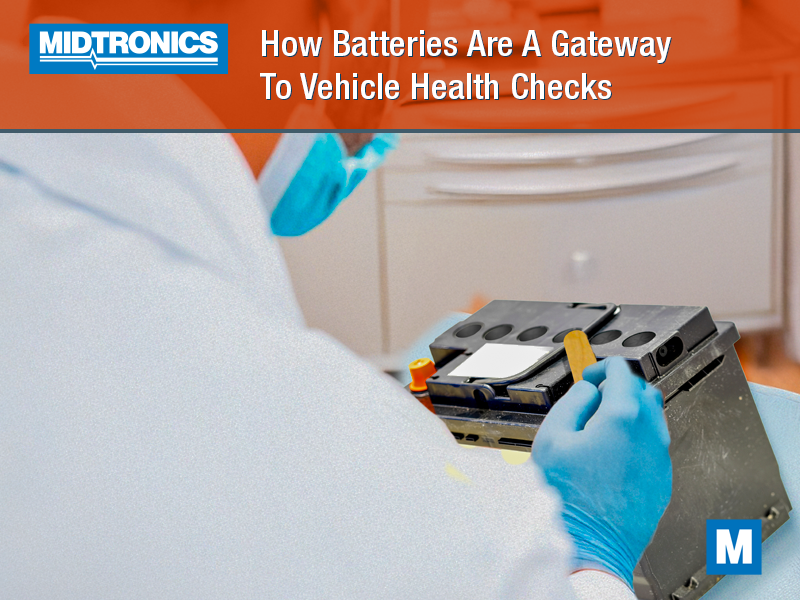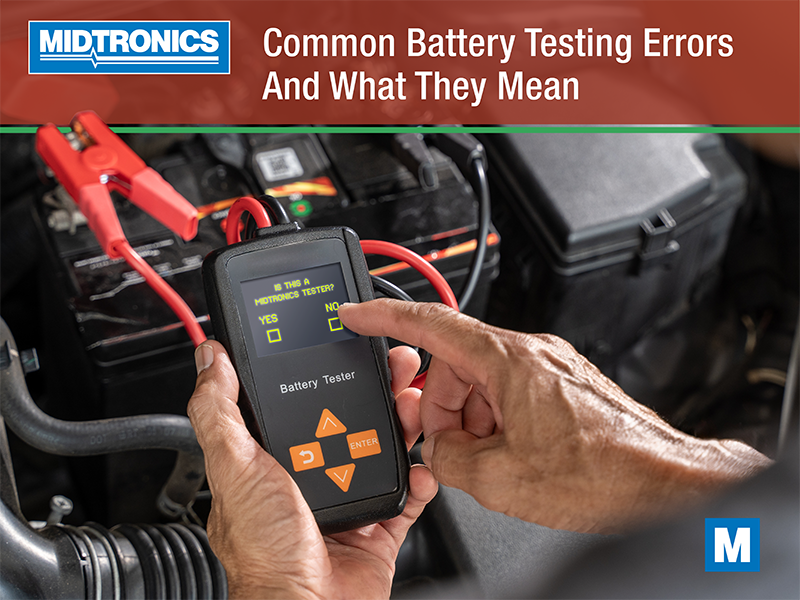The automotive industry is driven by innovation. Staying ahead means keeping up with the latest tools and technologies. For automotive service departments at franchised dealerships and independent service shops alike, this means understanding the importance of upgrading to the latest battery testers.
Why should you invest in new equipment when the old ones are still working? We’ll explore why it’s critical to invest in modern battery testing equipment, the benefits it brings, and how to select the right one for your service center.
The Landscape of Automotive Service is Evolving
Automotive technology is advancing at a rapid pace. It might appear that 12-volt batteries haven’t changed over the past 40 years, but even when the battery technology isn’t very different, the vehicles they’re being installed in have become immensely more advanced. The battery quarterbacks the electrical system, powering auto stop-start functions, supporting features when the engine is off, and of course, firing up the engine. From conventional fossil-fueled vehicles to hybrid engines and electric vehicles, the demand for up-to-date diagnostic tools has never been greater.
The consequences of a failing battery are more severe today, and a replacement battery can include additional services like battery registration that add to the cost and time to complete the process. And although some legacy battery testers still function perfectly fine, they might not support battery types like EFB, AGM, and Li-Ion.
In a world where vehicle technology is constantly evolving, keeping your diagnostic tools up to date is essential. Outdated equipment can lead to inaccurate diagnostics, customer dissatisfaction, and potential safety issues. Upgrading to the latest battery testers ensures that you stay competitive and deliver top-notch service.
Plus, there’s a consideration for the customer’s needs. Modern customers expect efficient, reliable service. Using the latest battery testers not only improves diagnostic accuracy but also enhances the overall customer experience by getting them out the door faster and more reliably. Quick, precise battery diagnostics can boost customer trust and loyalty.
The Role Battery Testers Play in Modern Maintenance
Battery testers are used to evaluate the health and performance of a vehicle’s battery, and every service shop has them. They measure voltage, cold cranking amps, and resistance to determine the battery’s condition and predict its remaining lifespan, but they aren’t all created equal. Modern vehicles come equipped with advanced electrical systems, and the latest battery testers are designed to interface seamlessly with these systems, providing diagnostic data that older models simply can’t match.
Accurate battery diagnostics are vital in preventing unexpected vehicle breakdowns. By identifying potential battery issues early, technicians can recommend replacements before the customer is left in a lurch, ensuring that customers avoid inconvenience and costly repairs. That’s even more important when the vehicles belong to a business or fleet where time equals money, and breakdowns are doubly costly.
It’s for these reasons that battery testers are among the most used equipment in any shop, testing battery after battery, all day long.
The Benefits of Upgrading to the Latest Battery Testing Equipment
Do recent advances in battery diagnostics make it worthwhile to replace or supplement the testers you have in your shop? There’s a strong argument for it. The latest battery testers offer superior accuracy and reliability compared to older models, of which there is no doubt. Advanced algorithms, machine learning, and improved sensors ensure that diagnostics are precise, reducing the risk of misdiagnosis and unnecessary battery replacements.
But it’s more than just accuracy. Upgrading to modern battery testing equipment can significantly enhance your staff’s efficiency. Faster diagnostics mean technicians can service more vehicles in less time, ultimately boosting profitability for the service center. That’s even more important when you factor in that battery tests are almost always a complimentary service, and spending time performing them when they don’t generate revenue can seem futile.
Going a step further, accurate and efficient diagnostics lead to quicker turnaround times and fewer repeat visits. Customers appreciate prompt, effective service, which translates to higher satisfaction rates and repeat business. And when dealership CSI scores are graded on Fixed First Visit, it really drives home the point.
Overcoming Common Objections to Upgrading
One of the most common objections to upgrading equipment is cost. While the initial investment may seem high, especially when it seems your current equipment is still doing the trick, it’s important to consider the long-term benefits. Improved efficiency, reduced misdiagnoses, and increased customer satisfaction can result in substantial financial gains over time.
Another concern is the learning curve associated with new equipment. Will technicians and service drive staff actually use them? However, most modern battery testers come with user-friendly interfaces and comprehensive training resources. Investing time in learning the new system can quickly pay off in improved diagnostics and service efficiency.
Some may worry about compatibility issues. The latest battery testers are designed work well with essentially any battery chemistry, resulting in better results without having to look for a different tester.
How to Select the Right Battery Tester for Your Service Center
Before selecting a battery tester, assess your service center’s specific needs. Consider the types of vehicles you service most frequently and the diagnostic features that are most important to your operations. If your clientele is light automotive, the MVT handheld tester is an industry leader. For heavy-duty applications, check out the DSS-5000 HD that stands out with 24V testing and Conductance Profiling technology.
Take the time to research different models and compare their features. Look for battery testers that offer the latest technology, and with our user-friendly interfaces and comprehensive diagnostic capabilities, you’ll find a great fit.
Conclusion
In the fast-paced world of automotive service, staying ahead means investing in the latest technology. Upgrading to the newest battery testing equipment ensures accurate diagnostics, improved efficiency, and enhanced customer satisfaction. Don’t get left behind – power up your service bay with the latest tools and keep your customers on the road.
Ready to take your service center to the next level? Explore Midtronics’ range of advanced battery testers and see the difference modern technology can make.




